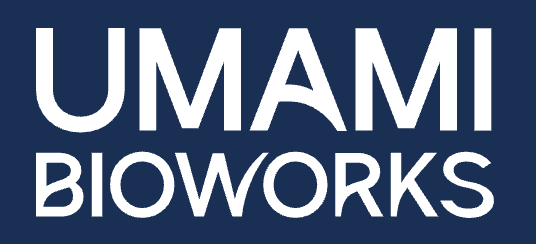For Umami Bioworks, a seafood-cell cultivator based in Singapore, managing ownership and equity at a global level is complex. Founder Mihir Pershad knew continuing to manage Umami’s ownership with Pulley wasn’t going to cut it.
Now, Umami uses Carta’s cap table management, financial reporting, and scenario modeling tools to keep investors and employees interested in its future.
Finding an adaptable solution
Umami Bioworks is the seventh startup Pershad has built, so he knows the ropes. He’s comfortable managing cap tables in spreadsheets, modeling ownership, and determining a company’s capital needs—but going global changes things.
Mihir PershadWe initially worked with Pulley before Carta. … and then I realized that, especially for international businesses, the coverage was not as complete as we’d hoped it would be.
Founder, Umami Bioworks
“Building Umami in Asia was a unique challenge because I had to adapt a lot of what I knew from the U.S. to different conditions,” said Pershad. “What we found looking at some of the upstart cap table management solutions—which there are many—was most are really not set up to handle international conditions around shares.
“We initially worked with Pulley before Carta. That was my experience saying, ‘Well, this seems to work,’ and then I realized that, especially for international businesses, the coverage was not as complete as we’d hoped it would be.”
Pershad looked at other solutions, too, including Cake because it covers Asia, but he worked with Carta at a previous startup and knew its products would meet his needs. Umami’s onboarding was smooth, and Pershad appreciates the easy access to documents, reports, and educational materials.
Managing investor relations
Umami combines stem-cell biology and machine learning to produce sustainable seafood free of pollutants. The company has dozens of stakeholders, including publicly traded companies, and is in the midst of completing a merger with another company.
Pershad is preparing for the next growth phase, and Carta helps him manage important relationships.
“We’re growing into our Series A stage with quite a few stakeholders. There are high expectations around professionalism in investor relations.
“Providing clean financial updates and being able to forecast future fundraises for all our shareholders really helps make them happy with us and the way we run Umami. That’s always a good thing, in case we want to ask them to support us in future fundraises or help open doors. It helps tremendously.”
Taking care of the team
Carta helps Pershad act on his personal values with his team, too. He believes every employee at Umami deserves equity, but in Asia, the idea of equity as part of total compensation is still new and may be less familiar to staff and candidates.
Carta’s educational materials and resources help team members understand concepts like employee stock ownership plans (ESOP).
“One of my core principles is that when you’re building companies, every person who joins along the way should somehow have upside,” shared Pershad. “Making it easy for staff to see how their equity value accrues with the company, so that they can value it as part of their compensation, is really important.”
Scenario modeling
Even as Umami multiplies its stakeholders, Carta makes it easy for Pershad to strategize. Scenario modeling provides visibility and transparency that saves time and reduces costs.
“Being able to run scenario models is very helpful,” Pershad said. “For example, it helps me make the case that we need a 12% ESOP and not 10% to hit our objectives. I can show how little or big of a difference that actually makes in a final pro forma. It’s just easier than having speculative conversations, and we don’t have to hand it to an analyst. We can just say yes or no.”
Converting shares in a merger
Quick access to accurate information also limits the risk of costly mistakes during Umami’s recent merger. Both Umami and the other entity use Carta, and Pershad has to convert acquired shares over to Umami’s cap table.
“I have done cap table modeling exercises in Excel at a high level, although iterative calculations are not the most fun things to try to set up,” said Pershad. “When you start trying to model out lots of shareholders, it’s too easy to screw up. The consequences for you or your employees can be pretty material financially.
“At a high level, what becomes less intuitive is how you manage edge cases. And there are a lot of edge cases. It’s not math you want to do on your own.”








